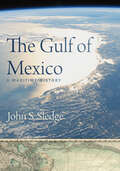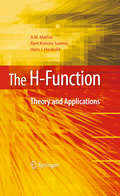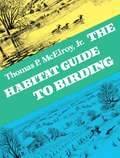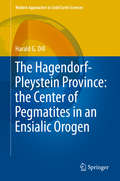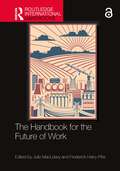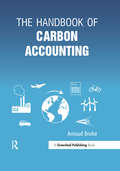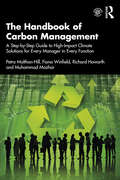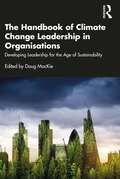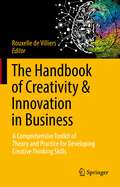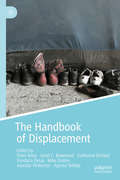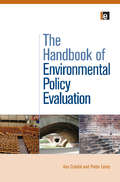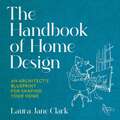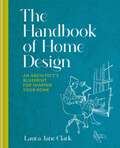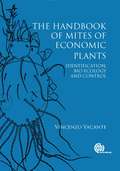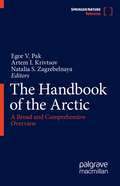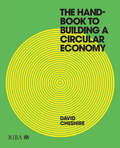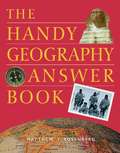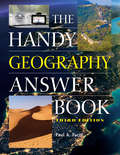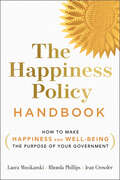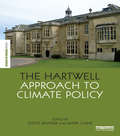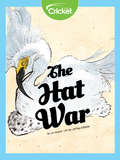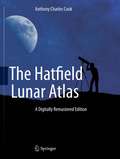- Table View
- List View
The Gulf of Mexico: A Maritime History
by John S. Sledge“[Sledge] rightfully celebrates and affirms the southern sea’s enriching past and gives readers reason to want for its wholesome and meaningful future.” —Jack E. Davis, Pulitzer Prize–winning author of The Gulf: The Making of an American SeaThe Gulf of Mexico presents a compelling, salt-streaked narrative of the earth’s tenth largest body of water. In this beautifully written and illustrated volume, John S. Sledge explores the people, ships, and cities that have made the Gulf’s human history and culture so rich. Many famous figures who sailed the Gulf’s viridian waters are highlighted, including Ponce de León, Robert Cavelier de La Salle, Francis Drake, Elizabeth Agassiz, Ernest Hemingway, and Charles Dwight Sigsbee at the helm of the doomed Maine. Gulf events of global historical importance are detailed, such as the only defeat of armed and armored steamships by wooden sailing vessels, the first accurate deep-sea survey and bathymetric map of any ocean basin, the development of shipping containers by a former truck driver frustrated with antiquated loading practices, and the worst environmental disaster in American annals.Occasionally shifting focus ashore, Sledge explains how people representing a gumbo of ethnicities built some of the world’s most exotic cities—Havana, way station for conquistadores and treasure-filled galleons; New Orleans, the Big Easy, famous for its beautiful French Quarter, Mardi Gras, and relaxed morals; and oft-besieged Veracruz, Mexico’s oldest city, founded in 1519 by Hernán Cortés. In the modern era the Gulf has become critical to energy production, fisheries, tourism, and international trade, even as it is threatened by pollution and climate change. The Gulf of Mexico is a work of verve and sweep that illuminates both the risks of life on the water and the riches that come from its bounty.
The H-Function
by Ram Kishore Saxena Hans J. Haubold A. M. MathaiThe two main topics emphasized in this book, special functions and fractional calculus, are currently under fast development in theory and application to many problems in statistics, physics, and engineering, particularly in condensed matter physics, plasma physics, and astrophysics. The book begins by setting forth definitions, contours, existence conditions, and particular cases of the H-function. The authors then deal with Laplace, Fourier, Hankel, and other transforms. As these relations are explored, fractional calculus and its relations to H-functions emerge with important results on fractional differentiation and fractional integral operators. The latter chapters explore applications of H-functions in statistical distribution theory, structures of random variables, generalized distributions, Mathai's pathway models, and versatile integrals. The authors also present an introduction to functions of matrix argument, with special focus on the space of Hermitian positive matrices. The book concludes with the most recent applications of H-functions and fractional calculus to physical problems in reactions, diffusion, reaction-diffusion theory, statistics, superstatistics, and generalized entropies.
The Habitat Guide to Birding
by Thomas P. McelroyThe United States is blessed with birds, a vast and richly varied population that changes considerably as the habitat changes from forest, to meadow, to marsh. As Thomas P. McElroy puts it in this unique birding guide, "Birds are everywhere . . . and this fact alone provides innumerable ecological equations to challenge the most curious of intellects." This is not a guide that answers only "What bird is it? but the deeper, more fascinating questions such as these: Why is it there? How does it survive? How does it contribute to the ecology of its surroundings? The answers to these questions, and many more, carry the birdwatcher well beyond lists and into a more involving, more satisfying means of observing nature.
The Hadza: Hunter-Gatherers of Tanzania
by Frank W. MarloweThe Hadza, who inhabit an area of East Africa near the Serengeti and Olduvai Gorge, have long drawn the attention of anthropologists and archaeologists for maintaining a foraging lifestyle in a region that is key to understanding human origins.
The Hagendorf-Pleystein Province: the Center of Pegmatites in an Ensialic Orogen
by Harald G. DillThis book will broaden readers' understanding of pegmatites in a special geodynamic setting, dealing with the emplacement of the Hagendorf-Pleystein Pegmatite Province (HPPP) in the Central European Variscides. This treatise illustrates the complex processes leading to the formation and partial destruction of the pegmatites, documenting the geochronological, chemical, mineralogical, geological and geomorphological / sedimentological data set. The book starts with a detailed account of the economic geology of the various pegmatites, explaining why these deposits are a major resource of ceramic raw materials. In its concluding section, a model of the pegmatite evolution in an ensialic orogen provides meaningful insights into the genetic aspects of pegmatite generation. The Late Paleozoic rare-element pegmatites of the HPPP, Oberpfalz-SE, Germany, rank among the largest concentrations in Europe. The biggest pegmatite of this mining district totals 4. 4 million tons of ore (Hagendorf-South). The mining history of the HPPP is restricted to the 20th century, when local entrepreneurs started mining operations in search of ceramic raw materials, feldspar and quartz. Today the "Silbergrube Aplite" is still worked for feldspar. The traditional mining of pegmatitic and aplitic rocks in Central Europe, such as the Bohemian Massif, which is shared by Germany, the Czech Republic, Poland and Austria, has been focused on these industrial minerals. In addition to these major commodities, lithium was mined for a period of time. But even today many of these pegmatites of calc-alkaline affiliation have not lost their appeal to mineralogists and mineral enthusiasts for their wealth of minerals that contain P, Nb, Ta, Li, Be, B, U, Th, Sc, Ti and Sn. The most favorable crustal section to bring about pegmatitic rocks of this type, encompassing pegmatoids, metapegmatites, reactivated pseudopegmatites and pegmatites sensu stricto is the ensialic orogen, exemplified by the Variscan (Hercynian) Orogen, which geodynamically connects the Paleozoic pegmatite provinces in North America and Europe. The geological history of the HPPP, however, goes much further than the Carboniferous-Permian magmatic activity, when the last structural disturbances of the Variscan orogeny affected the NE-Bavarian Basement between 450 and 330 Ma. During this time mafic magmatic rocks together with calcareous and arenaceous sediments were converted into paragneisses, calcsilicate rocks, and amphibolites. It is the period of time when tectonic shortening led to over thrusting and when the emplacement of nappes and the architectural elements of the ensialic orogen began taking shape. During the Late Permian, the Mesozoic and the Cenozoic, the HPPP did not lie idle in geological terms; hypogene and supergene alteration continued and found its most recent expression in alluvial-fluvial "nigrine" placer deposits, which resulted from the unroofing of the pegmatites and aplites in the HPPP and can be used even outside HPPP as an ore guide to pegmatites.
The Handbook for the Future of Work (Routledge International Handbooks)
by Frederick Harry Pitts Julie MacLeavyThe Handbook for the Future of Work offers a timely and critical analysis of the transformative forces shaping work and employment in the twenty-first century.Focusing on the past two decades, the handbook explores how technological advancements, automation and a shifting capitalist landscape have fundamentally reshaped work practices and labour relations. Beyond simply outlining the challenges and opportunities of automation, the handbook integrates these emerging realities with established discussions of work. Importantly, it moves beyond dominant technology-centric narratives, probing into broader questions about the nature of capitalism in a time of crisis and the contestation for alternative economic models. With contributions from established and emerging authors, based in institutions around the world, the handbook offers a systematic overview of the developments that have sparked radical shifts in how we live and work, and their multifaceted impacts upon social relations and identities, practices and sectors, politics and environments.The handbook is unique in its exploration of the potential for economic transformations to reshape the centrality of work in our social and political imaginaries. A useful resource for students and researchers, the handbook serves as an essential guide to this new intellectual landscape.
The Handbook of Carbon Accounting
by Arnaud BrohéCarbon Accounting is a vital tool in enabling organisations to measure and report on their greenhouse gas emissions. As the need to respond to the causes and impacts of climate change becomes increasingly urgent, emissions calculations and inventories are a vital first step towards mastering climatic risk. The Handbook of Carbon Accounting offers an accessible and comprehensive presentation of the discipline. The book examines the different methods or instruments implemented by countries and companies – such as carbon taxation, carbon markets and voluntary offsetting – while revealing how these stem not simply from the aim of reducing emissions for the lowest cost, but more as a compromise between divergent interests and individual world views. It also explores the historical context of the emergence of carbon accounting, assessing its evolution since the Rio Conference in 1992 and the signing of the Kyoto Protocol in 1997, to the latest Conference of Parties in 2015 in Paris.The book concludes with a very practical guide to calculate, reduce, offset and disclose your carbon footprint.Like other management tools, carbon accounting may not be an exact science, but its contribution has never been more important. The Handbook of Carbon Accounting is a vital educational resource that will help readers – including those with no prior knowledge of the field – to understand carbon flows and stocks and to take action. It forms part of a movement that heralds the start of a new economic era in which the search for prosperity can live in harmony with the environment.
The Handbook of Carbon Management: A Step-by-Step Guide to High-Impact Climate Solutions for Every Manager in Every Function
by Petra Molthan-Hill Fiona Winfield Richard Howarth Muhammad MazharEvery manager and every employee in every function can embed climate solutions and reduce greenhouse gas emissions. This book, written by experts in the field of sustainability in business, shows you how. The climate crisis is one of the greatest challenges we face today, and it affects all aspects of business and society. Consequently, everyone needs to know the best high-impact climate solutions that can be embedded into their organisational area. In this book you will find ideas for your team, your department and your organisation to make this a reality. We provide you with implementation plans and inspiring case studies, with practical and helpful tools that will help you to scale up climate solutions effectively and efficiently. If you are an owner of a company or an executive in any organisation, you will benefit from this step-by-step guide on how to set up your own greenhouse gas management plan, how to set targets and how to reduce the greenhouse gas emissions of your whole organisation. We explain key terms such as Net Zero, Carbon Neutral, carbon emissions equivalents and the three scopes. In order to halve our emissions worldwide by 2030 to achieve Net Zero by 2050, individual actions on a large scale are required, but also systemic changes. We look at the bigger picture in this book and also how you could effect change. This is the first book to offer an easy-to-implement approach to decarbonise organisations and transform societies, and is appropriate for managers at any level. This book can also be used in business schools to inspire future managers and business leaders. Last, but not least, everyone can find ideas here that they can implement in their personal lives – let’s scale up together!
The Handbook of Climate Change Leadership in Organisations: Developing Leadership for the Age of Sustainability
by Doug MacKieClimate change is one of the most significant and challenging problems we face today, and many organisations have recognised their responsibility in reducing emissions and environmental degradation and regenerating biodiversity. However, conventional leadership has failed to respond adequately to the magnitude of the threat, and a profound change in corporate leadership is required to substantively cut emissions and change climate policy to minimise further destructive environmental impact. This book sets out the qualities and approaches needed by leaders to successfully develop and implement climate change mitigation and adaptation policies. Bringing together the foremost experts in climate change leadership from business, leadership, psychology and coaching backgrounds, this book addresses the failures of current leadership practice and proposes a variety of models of how climate change leadership capabilities can be effectively developed in organisations. It is structured around four concepts: foundations, which includes models of environmental, ecological and evolutionary leadership; transitions, which looks at transformational and ethical models that are being repurposed for the age of sustainability; progressions, which explores innovative models that are being developed for the current age including systems, adaptation and maturity-based models of leadership; and actions, which includes models of sustainable goal setting and climate leadership coaching and development. The book is written for corporate leaders, researchers and educators and will be an invaluable addition to the leadership curriculum and executive development programmes to help the next generation of leaders respond to global challenges.
The Handbook of Creativity & Innovation in Business: A Comprehensive Toolkit of Theory and Practice for Developing Creative Thinking Skills
by Rouxelle De VilliersThis book enables readers to develop their own creative thinking and their teams' creative problem-solving skills to generate novel, useful and surprising ideas. The vast majority of companies believe that a culture of innovation and renewal impacts performance and ultimately business results. In contrast, many managers feel ill-equipped to promote a culture of creative endeavour for this type of work-environment and lack the know-how to put it into practice. This book covers theory, practice, and impact metrics of both convergent and divergent thinking tools and provide managers with the ideas, tools and guidance to develop a corporate culture conducive to intrapreneurial thinking, idea creation and testing and moving inventions from ideas to viable business concepts, products and profitable innovations. This book includes numerous step-by-step tutorials to help the reader to learn concepts quickly.
The Handbook of Displacement
by Vandana Desai Peter Adey Katherine Brickell Janet C. Bowstead Mike Dolton Alasdair Pinkerton Ayesha SiddiqiThis Handbook provides the knowledge and tools needed to understand how displacement is lived, governed, and mediated as an unfolding and grounded process bound up in spatial inequities of power and injustice. The handbook ensures, first, that internal displacements and their everyday (re)occurrences are not overlooked; second, it questions ‘who counts’ by including ‘displaced’ people who are less obviously identifiable and a clearly circumscribed or categorised group; third, it stresses that while displacement suggests mobility, there are also periods and spaces of enforced stillness that are not adequately reflected in the displacement literature; and fourth, it re-evokes and explores the ‘place’ in displacement by critically interrogating peoples’ ‘right to place’ and the significance of placemaking, unmaking, and remaking in the contemporary world. The 50-plus chapters are organised across seven themes designed to further develope interdisciplinary study of the technologies, journeys, traces, governance, more-than-human, representation, and resisting of displacement. Each of these thematic sections begin with an intervention which spotlights actions to creatively and strategically intervene in displacement. The interventions explore myriad meanings and manifestations of displacement and its contestation from the perspective of displaced people, artists, writers, activists, scholar-activists, and scholars involved in practice-oriented research. The Handbook will be an essential companion for academics, students, and practitioners committed to forging solidarity, care, and home in an era of displacement.
The Handbook of Environmental Policy Evaluation
by Ann Crabb Pieter LeroyPolicy evaluation is an important and well-established part of the policy process, facilitating and feeding back to promote the ongoing effectiveness of policies that have been implemented or anticipating policies in the making. Environmental policy is a special case, presenting new complexities uncommon to other areas, which standard evaluation tools are ill-equipped to grapple with. It is also an area that is experiencing rapid growth throughout the world and knowledge is now needed at all levels of government and in NGOs, businesses and other organizations, all of whom are required to assess the effectiveness of their policies. This handbook is the first guide to environmental policy evaluation in practice. Beginning with an introduction to the general principles of evaluation, it explains the particular complexities native to the environmental sphere and provides a comprehensive toolkit of evaluation methods and techniques which the practitioner can employ and refer to again and again. The authors also consider design issues which may face the policy evaluator, including involvement of stakeholders, the sensitivities between them, the a priori assessment of the evaluability of a field, the maximization of the utilization of the evaluations outcomes, and much more. Throughout, the theory is illustrated with practical examples from around the world, making this the essential companion guide for anyone tasked with ensuring that environmental policy fulfils its aims and achieves its potential.
The Handbook of Home Design: An Architect’s Blueprint for Shaping your Home
by Laura Jane ClarkArchitectural solutions & designs to optimize the spaces in your home without spending a fortune.Architect Laura Jane Clark, from the BBC and Netflix smash-hit series Your Home Made Perfect, has spent over 15 years designing, remodelling, and building homes with budgets that range from modest to enormous. THE HANDBOOK OF HOME DESIGN distils Laura's wealth of experience and enthusiasm giving you an accessible yet detailed guide to design, empowering you with the tools and knowledge to shape your home how you want. Throughout your home design journey, whether large or small, Laura takes you each step of the way from understanding your home, reading a plan and writing a brief, right through to sketching your own design and having the confidence to get what you want on the building site. Packed full of tips and tricks, inspiration and technical know-how, THE HANDBOOK OF HOME DESIGN is like having Laura by your side, showing you how to design practical yet beautiful spaces, get more storage into your life and create the home of your dreams.Laura Jane Clark wants to democratize the whole concept of residential architectural design and empower you to redesign your spaces by giving you the language and ability to confidently communicate your vision, get the most out of your design and ultimately love your finished home. Whether you are a long-term homeowner, first-time buyer or simply visualising your dream space, no matter what your budget is, this unique insight into Laura's process allows you to achieve both the design you want and the home you need.www.lamparchitects.co.uk Instagram: @laurajaneclark_(p) 2023 Octopus Publishing Group
The Handbook of Home Design: An Architect’s Blueprint for Shaping your Home
by Laura Jane ClarkArchitectural solutions & designs to optimize the spaces in your home without spending a fortune.Architect Laura Jane Clark, from the BBC and Netflix smash-hit series Your Home Made Perfect, has spent over 15 years designing, remodelling, and building homes with budgets that range from modest to enormous. THE HANDBOOK OF HOME DESIGN distils Laura's wealth of experience and enthusiasm giving you an accessible yet detailed guide to design, empowering you with the tools and knowledge to shape your home how you want. Throughout your home design journey, whether large or small, Laura takes you each step of the way from understanding your home, reading a plan and writing a brief, right through to sketching your own design and having the confidence to get what you want on the building site. Packed full of tips and tricks, inspiration and technical know-how, THE HANDBOOK OF HOME DESIGN is like having Laura by your side, showing you how to design practical yet beautiful spaces, get more storage into your life and create the home of your dreams.Laura Jane Clark wants to democratize the whole concept of residential architectural design and empower you to redesign your spaces by giving you the language and ability to confidently communicate your vision, get the most out of your design and ultimately love your finished home. Whether you are a long-term homeowner, first-time buyer or simply visualising your dream space, no matter what your budget is, this unique insight into Laura's process allows you to achieve both the design you want and the home you need.www.lamparchitects.co.uk Instagram: @laurajaneclark_
The Handbook of Home Design: An Architect’s Blueprint for Shaping your Home
by Laura Jane ClarkArchitectural solutions & designs to optimize the spaces in your home without spending a fortune.Architect Laura Jane Clark, from the BBC and Netflix smash-hit series Your Home Made Perfect, has spent over 15 years designing, remodelling, and building homes with budgets that range from modest to enormous. THE HANDBOOK OF HOME DESIGN distils Laura's wealth of experience and enthusiasm giving you an accessible yet detailed guide to design, empowering you with the tools and knowledge to shape your home how you want. Throughout your home design journey, whether large or small, Laura takes you each step of the way from understanding your home, reading a plan and writing a brief, right through to sketching your own design and having the confidence to get what you want on the building site. Packed full of tips and tricks, inspiration and technical know-how, THE HANDBOOK OF HOME DESIGN is like having Laura by your side, showing you how to design practical yet beautiful spaces, get more storage into your life and create the home of your dreams.Laura Jane Clark wants to democratize the whole concept of residential architectural design and empower you to redesign your spaces by giving you the language and ability to confidently communicate your vision, get the most out of your design and ultimately love your finished home. Whether you are a long-term homeowner, first-time buyer or simply visualising your dream space, no matter what your budget is, this unique insight into Laura's process allows you to achieve both the design you want and the home you need.www.lamparchitects.co.uk Instagram: @laurajaneclark_
The Handbook of Mites of Economic Plants
by Vincenzo VacanteMites pose a serious problem to plants worldwide, attacking crops and spreading disease. When mites damage crops of economic importance the impacts can be felt globally. Mites are among the most diverse and successful of invertebrates, with over 45,000 described species, with many more thousands to be discovered. They are responsible for a significant portion of the losses of crops for food, fibre, industry and other purposes, and require expensive and often controversial pest control measures. Understanding these mites is vital for entomologists, pest researchers, agronomists and food producers. Knowledge of mite pests helps to inform control strategies and optimize the production of economic plants and the agrarian economy. This encyclopedia provides a thorough coverage of the mites and the problems they cause to crops, yet it is easily searchable, organised by mite species and subdivided into helpful headings. It takes a worldwide view of the issue of mites injurious to economic plants, describing mites prevalent in different regions and discussing control methods appropriate in different environments. This book provides an encyclopaedic reference to the major mites, described by family in terms of their internal and external morphology, bio-ecology and family systematics. Methods of mite collection and laboratory study is described, as well as species diagnostic characteristics, worldwide distribution, host plants, identification by the type of damage they cause and control strategies, including chemical and biological intervention and integrated pest management measures. Mites of the following families are included: (Eriophyoidea, Tarsonemidae, Tuckerellidae, Tenuipalpidae, Tetranychidae, Acaridae, Penthaleidae). Mites of Economic Plants is an important resource for students of entomology and crop production, and as a thorough reference guide for researchers and field workers involved with mites, crop damage and food production.
The Handbook of the Arctic: A Broad and Comprehensive Overview
by Egor V. Pak Artem I. Krivtsov Natalia S. ZagrebelnayaThis book offers a broad and holistic overview of issues in the Arctic today, a region which is transforming due to changing world order and climate agenda. While new economic opportunities - and with China, as well as other geopolitical players in the region - are emerging, new security challenges are arising as well. In this comprehensive scholarly resource, contributors from around the world and from a broad variety of disciplines share their thoughts on the future of the Arctic, in a manuscript that will be of interest to researchers, economists, and policymakers.
The Handbook to Building a Circular Economy
by David CheshireThis book is a call to arms to all architects, designers and built environment professionals. To avoid a climate catastrophe and achieve a regenerative built environment, the use of new materials and any excess waste in resources need to be cut out from the very beginning of the design process. This requires far-reaching change in established industry processes. How might this begin? What are the key fundamentals you need to know? How can a more effective model be applied? This book, a much-updated second edition of the author’s previous work Building Revolutions, answers all your questions. Inspiring, but never overwhelming, the Handbook to Building a Circular Economy is your must-have companion to helping create a more sustainable future. It explains in simple and practical terms how the principles of a circular economy can be applied to the built environment, thereby reducing the resources required to construct, fit-out, maintain and refurbish buildings. Case studies include: The Forge, UK, by Landsec The Bath School of Art, UK, by Grimshaw Urban Mining and Recycling Experimental Unit, Switzerland, by Werner Sobek NASA Sustainability Base, USA, by William McDonough + Partners University of East Anglia Enterprise Centre, UK, by Architype Park 20|20, The Netherlands, by William McDonough + Partners.
The Handy Geography Answer Book
by Paul A Tucci Mathew Todd RosenbergAn expert on the unexplained and paranormal research, Brad and Sherry Steiger turn their unique and remarkable talents to the bold storytelling of encounters with the unknown from throughout the ages. From mysterious strangers and unpredictable beings to weird behavior and paranormal phenomena, they investigate claims of visits from ghastly ghosts, otherworldly creatures, aliens living among us, phantoms, spirits and other accounts of encounters with the unexplained. Over 130 astounding accounts of Real Encounters with the supernatural, such as ... *Visitors from others worlds who have had Earth under surveillance for centuries, conducting their activities in secret-- even abducting humans for their own research and undeclared ends. *Members of secret societies who developed an advanced technology centuries ago which has been kept hidden in underground or undersea cities. *Time Travelers from the Future. Beings who claim to be our descendents from the future who are returning to study the true destiny of humankind. *Ghosts that haunt people, places, and things--and poltergeists that create havoc. *Beasties and monsters found in everyone's worst nightmares--and sometimes in their campsites, fields, and yards. *Other Dimensional Visitors, Beings, Creatures, or Entities that come not from a faraway world in our solar system or any other, but from an adjacent space-time continuum existing on another vibrational/dimensional frequency or level. *Previously unknown, unidentified terrestrial life-forms, such beings as "sky-critters," "sky fish," "rods," and "orbs." *As yet unknown physical energies that may be activated by the psyche, the unconscious level of the human mind. *Archetypal creatures and entities of the collective unconscious that are the result of energies that are accessible through dreams, meditations, and other states of altered consciousness. *Interactions with beings that have been dubbed elves, fairies, devas throughout the centuries. *The marvelous, creative facet of dreams. *Out-of-body mind-traveling through Time and Space. *Majestic beings who are described in the scriptures of many world religions as angels or demons.
The Handy Geography Answer Book
by Paul A TucciGeography is more than just maps and finding your destination. It is about the land, the people on that land, the delicate balance of nature, and our very interdependence upon it, despite the miracles of technology and grocery stores. It's about the effects of nature on places and people, as well as how politics, borders, cities, and towns affect our lives. The Handy Geography Answer Book traces the history of geography from Eratosthenes and Alexander von Humboldt to latitude and longitude, and the latest advances in the Global Positioning System (GPS). It provides insights into economic, social, historic, culture, religious, political, and climate geography, plus oceanography, demographics, and more.Completely revised and updated, it tours the world, its natural features, and the ever-changing mark humans make on our planet, answering 1,200 questions from the trivia (longest, hottest, tallest) to how geography has influenced history, religion, architecture, and the location of cities, including Who first had the idea that there is a magnetic North Pole? What is interesting about Google's "Streetview"? How many people are projected to live on the planet in 2050? Which state has the highest annual divorce rate? What are the largest and smallest counties in the U.S.?
The Handy Weather Answer Book
by Kevin HileFully updated with the latest advances in meteorology as well as an additional section on climate change, this comprehensive reference addresses all aspects of weather in an accessible questionandanswer format. All the basic elements of weather are discussed, as are all types of weather phenomena and the science of forecasting. In addition, the relationships between weather and oceanography, geology, and space science are expertly covered. Included are more than 1,000 questions and answers such as, Has a hurricane ever struck southern California? Could our oceans have originated in space? and What is bioclimatology? This resource is an ideal reference for students, teachers, and amateur meteorologists.
The Happiness Policy Handbook: How to Make Happiness and Well-Being the Purpose of Your Government
by Rhonda Phillips Laura Musikanski Jean CrowderBuild a better society through happiness policyThomas Jefferson said that “the purpose of government is to enable the people of a nation to live in safety and happiness.” Yet only now, 270 years later, is the happiness of citizens starting to be taken seriously as the purpose of government.While happiness science is advancing rapidly, and governments and organizations are creating indices for measuring happiness, there is little practical information on how to create policy to advance happiness.Drawing from a deep well of expertise and experience, The Happiness Policy Handbook is the first step-by-step guide for integrating happiness into government policy at all levels. Coverage includes:A concise background on happiness science, indices and indicators, and happiness in public policyTools for formulating happiness policy and integrating happiness into administrative functionsA concept menu of happiness policiesCommunicating happiness policy objectives to media and engaging with the communityA happiness policy screening tool for evaluating the happiness contribution of any policyPolicy perspectives from seasoned experts across sectors.The Happiness Policy Handbook is the essential resource for policymakers and professionals working to integrate happiness and well-being into governmental processes and institutions.
The Hartwell Approach to Climate Policy (The Earthscan Science in Society Series)
by Steve Rayner Mark CaineThe Hartwell Approach to Climate Policy presents a powerful critique of mainstream climate change policies and details a set of pragmatic alternatives based on the Hartwell Group’s collective writings from 1988-2010. Drawing on a rich history of heterodox but increasingly accepted views on climate change policy, this book brings together in a single volume a series of key, related texts that define the ‘Hartwell critique’ of conventional climate change policies and the ‘Hartwell approach’ to building more inclusive, pragmatic alternatives. This book tells of the story of how and why conventional climate policy has failed and, drawing from lessons learned, how it can be renovated. It does so by weaving together three strands of analysis. First, it highlights why the mainstream approach, as embodied by the Kyoto Protocol, has failed to produce real world reductions in greenhouse gas emissions and delayed real meaningful progress on climate change. Second, it explores the underlying political, economic, and technological factors which form the boundary conditions for climate change policy but which are often ignored by policy makers and advocates. Finally, it lays out a novel approach to climate change guided centrally by the goal of uplifting human dignity worldwide—and the recognition that this can only succeed if pursued pragmatically, economically, and with democratic legitimacy. With contributions from leading scholars in the field, this work presents a original critique of climate policy and a constructive primer for how to improve it.
The Hat War
by Liz HuyckHave you ever seen a feather in a hat? A long time ago, they were very fashionable. Some people would even put whole birds on their hats! To get the feathers, though, the birds had to be hunted. Learn about the women who fought to change laws in the name of conservation!
The Hatfield Lunar Atlas
by Anthony Cook"The Hatfield Lunar Atlas" has become an amateur lunar observer's bible since it was first published in 1968. A major update of the atlas was made in 1998, using the same wonderful photographs that Commander Henry Hatfield made with his purpose-built 12-inch (300 mm) telescope, but bringing the lunar nomenclature up to date and changing the units from Imperial to S.I. metric This edition is important since the fact is that modern telescope optics, digital imaging equipment and computer enhancement can easily surpass what was achieved with Henry Hatfield's 12-inch telescope and a film camera. This limits the usefulness of the original atlas to visual observing or imaging rather small amateur telescopes. The new, digitally re-mastered edition vastly improves the clarity and definition of the original photographs - significantly beyond the resolution limits of the photographic grains present in earlier atlas versions - while preserving the layout and style of the original publications. This has been achieved by merging computer-visualized Earth-based views of the lunar surface, derived from NASA's Lunar Reconnaissance Orbiter data, with scanned copies of Commander Hatfield's photographic plates, using the author's own software. The results is a "The Hatfield Lunar Atlas" for 21st century amateur telescopes up to and beyond 12-inch aperture.
